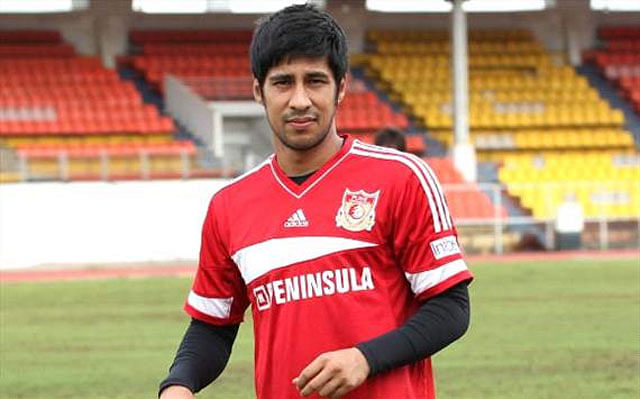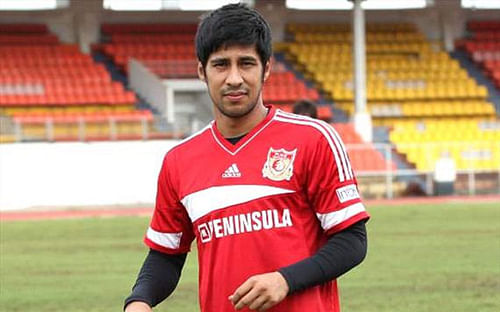
Playing, earning and marrying Indians: Arata Izumi breaks a tradition

A decade back, I had asked former Iranian footballer Jamshed Nassiri why he didn’t take up Indian citizenship. Nassiri, a former star player with East Bengal and Mohammedan Sporting, couldn’t give me a convincing reply.
From the 80s till now, several top foreigners have played in different Indian clubs. Majid Bishkar, Nassiri’s teammate at East Bengal and Sporting and a former World Cupper with Iran, and probably the best foreigner to have played in India, also never thought about taking up Indian nationality even though the player was very fond of Calcutta.
Nigerian stalwart Chima Okorie, whose powerful strikes are still being discussed in the corridors of Mohun Bagan, East Bengal and Sporting, married an Anglo-Indian but decided to hold his Nigerian passport.
In fact, there were so many good foreign players who had dazzled in Indian football, married Indians and settled here. But none of them could show their admiration for the Indian national team till Arata Izumi broke that tradition of ‘playing, earning and marrying’ Indians.
I first saw Izumi during the I-League in 2006 at Ambedkar Stadium. He came off as a substitute for East Bengal, who probably signed him to accommodate their ‘Asian quota’.
The decision to include Arata in the national squad for the upcoming friendly against Palestine throws up an interesting debate. Shouldn’t we encourage some of the good foreign footballers to take up Indian nationality? Since our Constitution doesn’t allow for double citizenship, many such players don’t even think of surrendering their own nationality.
In the late nineties, the Atal Bihari Vajpayee government was even considering introducing double citizenship. Had it been done, our Indian team would have been strengthened with the likes of Ramirez Barretto, Okorie, Bernard Oparanozie, Ranty Martins, Mike Okoro and many others who stayed back in this country.
Maybe Arata was a bit determined to play for India after having stayed in the country for seven years. The Japanese player of Indian origin had seen the difficult times. While playing for Mitsubishi Motors Mizushima FC in the J-League, Arata also doubled as a toso (a person who paints cars). He worked 10 hours a day with the car company and then spent two hours practising with the football team. He had a successful stint with the team where he scored scored seven goals in 24 games for the team.
Arata’s decision to accept Indian citizenship stems from the fact that he wanted to explore his career with the Indian team and not just restrict himself as a club player for Pune FC.
While some other foreign players are just too happy to spend their time in India as a ‘foreigner’ and also have their Indian wives supporting them, Arata is a bit different. He too married an Indian girl but also wanted to be recognised as an ‘Indian’ footballer.
And that’s why you have to be convinced about his love for India when he said that accepting the Indian citizenship was the biggest decision in his life.
We all know that the clubs or the national federation cannot force foreign players to become Indian citizens. But players who have stayed back in this country for two decades or more just for money and opportunity, should also have given a thought to the country where they made their second home for decades.
Former Nigerian star Okorie runs his own business from Calcutta after several failed attempts in club coaching. Nassiri, who came to India in 1979 as a student in Aligarh Muslim University, is happily settled in central Calcutta with his North-Eastern wife and two kids. The Iranian actively takes part in promoting football in the country and also once coached the Maharashtra team in the Santosh Trophy. Barretto is also known for his intense love of Calcutta and India.
Surprisingly, none of these former greats had ever evinced any interest in accepting this country as their own.
We sincerely hope that Arata’s historic decision will inspire other foreign footballers who are plying their trade in Indian football.